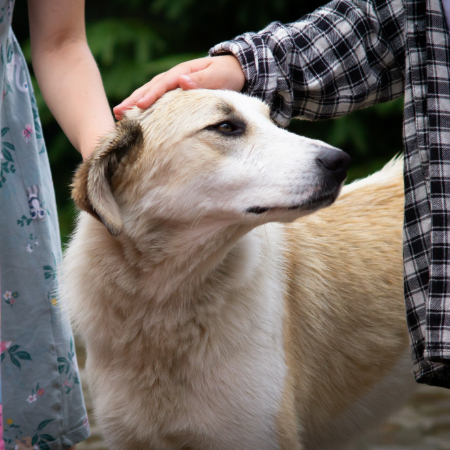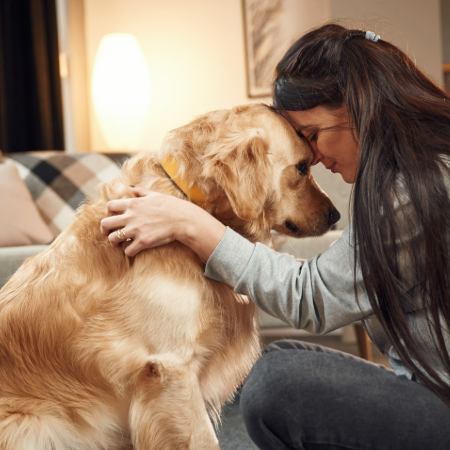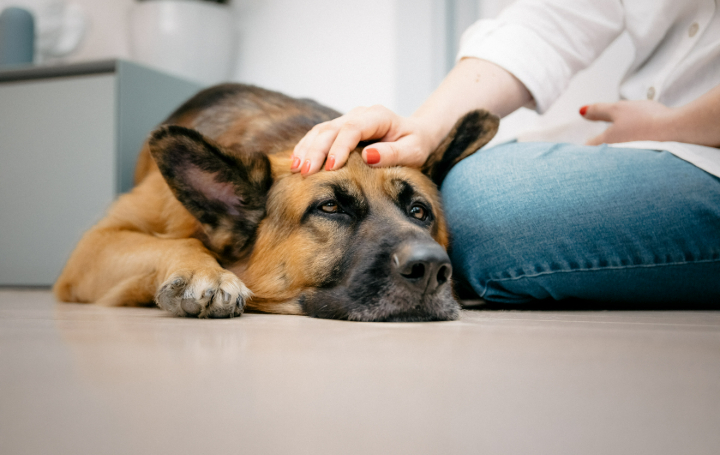How Dogs Help Us with Grief: Coping Mechanisms for Loss
Losing a loved one—whether it’s a family member, friend, or even a pet, can be one of the hardest experiences we go through. Grief is a strange, heavy thing. Sometimes, it feels like it hits you all at once, and other times, it creeps in slowly, almost like a shadow that follows you wherever you go. During such times, people often turn to those who offer comfort and companionship, and for many of us, dogs have an extraordinary ability to help ease the pain.
In this article, we’ll dive into the many ways our loyal furry friends assist us in navigating the difficult journey of grief. From being an emotional anchor to offering moments of joy, dogs truly are “man’s best friend” in every sense of the word.
1. Unconditional Love and Support
One of the first things that comes to mind when thinking of dogs is their unconditional love. They don’t care what you look like, how much money you make, or what you’ve been through—they simply love you because you are you. This non-judgmental and accepting nature of dogs is what makes them incredibly effective in helping people deal with grief.

When we’re grieving, we may feel like the world is a little colder, a little less understanding. In contrast, dogs are always there to offer warmth. They don’t ask questions; they just offer their presence, their body warmth, and their calming energy. Their simple act of sitting by your side without saying a word can be incredibly healing.
2. Providing a Sense of Purpose
Grief can leave us feeling lost, especially when the person or pet we’ve loved is no longer around. One of the things that dogs do best is give us a reason to get out of bed in the morning. Whether it’s for a walk, playtime, or just feeding them, dogs rely on us for care, which can give us the purpose we need to keep going.
When we’re grieving, it can be easy to lose sight of our daily routine. The responsibility of caring for a dog forces us to stay active, even when we don’t feel like it. This sense of routine and responsibility can provide a much-needed anchor during turbulent emotional times.
3. Distraction and Fun
While grief can feel like an overwhelming storm of emotions, dogs have a magical way of distracting us. Have you ever noticed how simply playing fetch or watching your dog do something silly can make you forget, even for a brief moment, the heaviness in your heart?
Dogs are inherently playful and bring out the lighter side of life. Their goofy antics, wagging tails, and uncontainable excitement at the simplest things can help shift our focus from sadness to joy. Even in moments when you’re feeling at your lowest, a wagging dog can remind you that joy still exists, even if it’s just for a short time.

It’s not just their playful side that provides distraction—dogs can also help you with their calming presence. A simple cuddle, a quiet walk in the park, or even the curling up next to you in bed can provide a sense of calm that’s hard to replicate. Their gentle nature and soothing sounds—like the rhythmic thumping of their tail or a quiet pant—can help ease anxiety and quiet a racing mind.
4. Non-Verbal Communication: A Listening Ear
Sometimes, when we’re grieving, we don’t want to talk. We may feel that no one will truly understand the depth of our loss, or we might not even have the words to express how we feel. Dogs, however, don’t require us to verbalize our emotions to offer comfort. They don’t need us to explain anything—they simply understand us on an intuitive level.
Dogs have a remarkable ability to sense our emotions. They know when we’re sad, anxious, or upset, and they often respond with comforting gestures like nuzzling their head against us, curling up beside us, or even just lying quietly at our feet. It’s as if they can feel our sorrow, and they’re there to help us through it without needing an explanation.
In moments when words feel too heavy or inadequate, a dog’s presence can provide the silent, non-verbal support we need to feel understood. They are like the best kind of listeners—always there and always present.
5. The Healing Power of Routine and Exercise
When you’re grieving, it’s easy to fall into a cycle of inactivity. You might feel too emotionally drained to exercise or even leave the house. However, dogs have an amazing way of getting us out and moving. Whether it’s a morning jog or an afternoon walk, dogs are relentless when it comes to getting their exercise!
Physical activity, especially walking, has been shown to boost mood and reduce feelings of sadness or anxiety. When you go on walks with your dog, you get a chance to clear your mind, breathe fresh air, and enjoy some light exercise. It’s a way to take a break from your grief, even if just for a short time, and the bond you share with your dog during these moments can be incredibly therapeutic.
6. Creating a Strong Emotional Bond
Dogs are exceptional at creating a bond with their owners. When we go through loss, we often seek connections—anything that can replace the emptiness left behind. A dog doesn’t just replace that emptiness; they offer a new kind of love. One that is consistent, loyal, and pure.
The act of caring for a dog during grief is mutually healing. As you nurture them, they are also nurturing you. Whether it’s petting them, talking to them, or simply spending time together, the bond you share becomes a source of emotional strength. Knowing that someone—or something—needs you can be incredibly comforting in the midst of grief.
7. The Comfort of Routine Care
In times of emotional upheaval, routines can offer us a sense of normalcy. Dogs thrive on routine, and as their caretakers, we do too. When you care for your dog, whether it’s feeding, grooming, or playing, it creates a comforting structure in your day. These small but regular activities help break up the monotony of grief and provide small doses of comfort.
This routine care also allows us to focus on something outside of ourselves. Grief can often feel all-consuming, but by caring for your dog, you’re reminded that there are other beings depending on you. This can help shift your mindset, even if just for a while.
8. Dogs Can Be Emotional Anchors in Tough Times
A dog can serve as a steady emotional anchor during grief. Their ability to stay by our side, no matter what can offer a sense of comfort that humans sometimes struggle to provide. Whether it’s during moments of anger, sadness, or frustration, a dog will never turn away. They’re a constant, loyal presence that helps us feel grounded, even when everything else feels uncertain.

A dog’s emotional intuition can bring a sense of balance to our lives when we feel lost in a sea of emotions. They remind us that it’s okay to feel what we’re feeling but also that life goes on, and with their companionship, we can find the strength to move forward.
Conclusion
Grief is a tough journey, but with the unwavering support of dogs, we can find ways to cope and heal. They offer us love, comfort, and joy when we need it most. From their comforting presence to their playful antics and loyal companionship, dogs have an amazing ability to help us navigate the toughest emotions. In the midst of loss, they are a reminder that even when we feel broken, we are never truly alone.
So, the next time you feel grief weighing heavy on your heart, remember that your furry friend is there, ready to offer you unconditional love, a warm cuddle, and a reminder that life, while difficult, is still full of small moments of joy.
Tags










